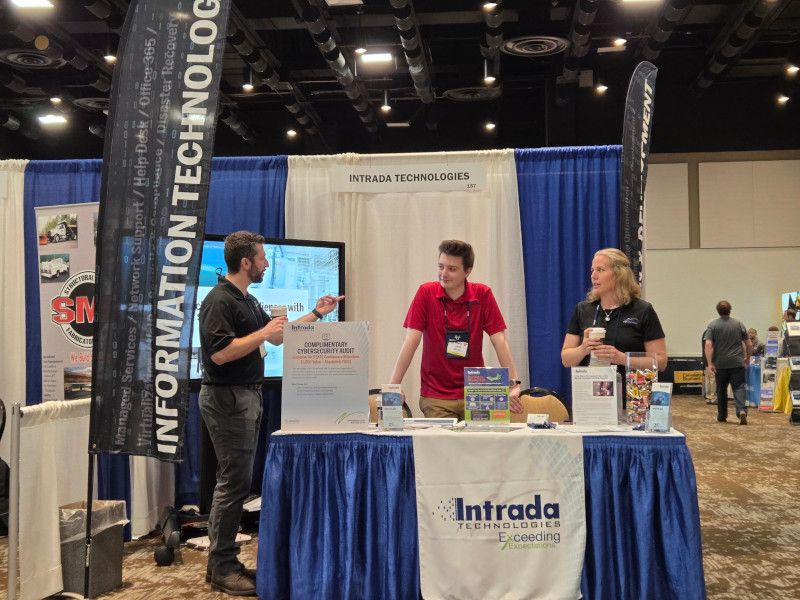May has once again delivered a seismic shift in the tech landscape, with Microsoft Build 2025 and Google I/O 2025 concluding and leaving us with a vivid picture of the innovations to define our near future. The overarching theme? Artificial Intelligence is not just evolving; it's becoming deeply wov...
Reflecting on the 2025 PSATS Annual Conference
The 2025 Pennsylvania State Association of Township Supervisors (PSATS) Annual Conference, held from May 4th to 7th at the Hershey Lodge, was more than just an event—it was a celebration of community-focused collaboration and innovation. This annual gathering – brought together township supervisors, municipal professionals, exhibitors, and leaders from across Pennsylvania. Stretching over three and a half days, the conference emphasized the vital role of local governance in shaping thriving communities and the ongoing need to provide these leaders with the resources and tools needed to meet their objectives.
Learning Opportunities
The event’s schedule of workshops and sessions offered information regarding various topics essential to effective municipal governance. Attendees had the chance to explore subjects such as strategic budgeting, smart land use planning, disaster preparedness, and leveraging new technologies to enhance citizen engagement.
Intrada's Commitment to Supporting Townships
Participating as both an exhibitor and session contributor, Intrada was proud to actively support the 2025 PSATS Annual Conference. Our exhibit highlighted a suite of solutions aimed at streamlining township operations and enhancing citizen engagement, helping local governments become more transparent, efficient, and effective. The response from attendees underscored a clear recognition of how technology can address their most pressing challenges.
David Steele, Intrada’s representative at the event, was a contributor to the conference’s programming, delivering two well-received sessions. The first focused on cybersecurity, equipping township leaders with the knowledge to safeguard their systems and data against growing threats; the second explored digital marketing strategies, providing insights into effectively communicating with residents and stakeholders.
The Legacy of Pennsylvania’s Townships
The success of the PSATS Annual Conference lies in its ability to highlight the extraordinary work of Pennsylvania’s townships—communities that are often the unsung heroes of local governance. With over 1,400 townships across the state, these entities represent the backbone of governance in both urban outskirts and rural areas. Townships provide essential services ranging from road maintenance and land use management to public safety initiatives and community planning.
Pennsylvania townships, classified as first or second class based on their population and governance structures, reflect the diversity of their communities. First-class townships are typically more urbanized with advanced administrative systems, while second-class townships, often rural, focus on providing fundamental services to dispersed populations. This structural flexibility allows townships to stay closely connected to their residents and tailor solutions that address their unique needs.
Differentiating Local Governance Structures
A notable theme throughout the conference was the recognition of the distinct roles that townships, boroughs, and cities play in Pennsylvania’s governance framework. By understanding these differences, local leaders can develop strategies that effectively address the specific challenges faced in their jurisdictions. Townships govern broad areas with lower population densities, concentrating on foundational services like infrastructure management and land development. Boroughs, characterized by smaller yet centralized communities, cater to localized needs with closely-knit administrative operations. Cities, often much larger and diverse, tackle complex governance challenges that require extensive resources and multi-department coordination. These distinctions underscore the importance of collaboration and customization in government operations.
Celebrating Collaboration and Planning for Tomorrow
The 2025 PSATS Annual Conference was more than a gathering—it was a platform for setting new benchmarks and forging meaningful connections. The energy throughout the event was a testament to the resilience and dedication of township supervisors and their teams. These leaders, through initiatives like PSATS, demonstrate what local governance is truly about—accessibility, accountability, and a commitment to continuous improvement.
Participation at the annual conference also highlighted the importance of public-private partnerships in driving progress. Exhibitors like Intrada, state organizations, and other stakeholders play valuable roles in equipping municipal leaders with the resources they need to address modern challenges. PSATS fosters this collaboration, creating an environment of mutual respect and shared purpose where innovation can thrive.
Looking Toward the Future
Reflecting on the 2025 PSATS Annual Conference reinforces the critical importance of strong, interconnected township leadership in Pennsylvania. For Intrada, the experience deepened our commitment to supporting local governments as they evolve and adapt to the demands of the future. The advancements, partnerships, and invigorating discussions of this year’s conference have set the stage for an even brighter road ahead.
Looking forward to the 2026 conference, scheduled for late April at the Hershey Lodge, we eagerly anticipate building on the momentum created this year. Through collaboration, innovation, and shared dedication, Pennsylvania’s townships are poised to continue leading their communities toward a more sustainable and prosperous future. Together, we can shape brighter tomorrows, ensuring that townships remain resilient, adaptable, and invaluable to the residents they serve.
Protect Yourself from the Recent Surge in Smi...
Smishing, a combination of SMS and phishing, has become one of the fastest-growing cyber threats in recent years. This scam involves fraudulent text messages designed to trick victims into revealing sensitive information, such as passwords, personal data, or bank details. The Federal Bureau of Inves...



